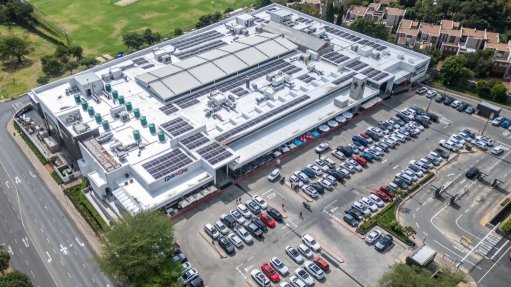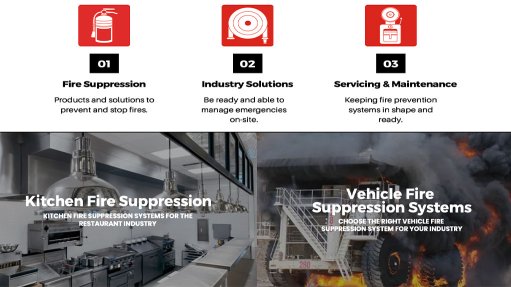Companies need to adjust operating, business models amid growth in generative AI
Generative AI (genAI) is having a measurable impact on companies that adopt these systems, and 58% of workers that are using genAI are able to save five hours a week in work time, the 'AI at Work in 2024' report, published by consulting firm Boston Consulting Group (BCG), shows.
The focus of companies is now shifting from adoption of the technology to using the increased availability of employees' time to add value or improving the satisfaction of employees, says BCG technology design division BCG X global leader Sylvain Duranton.
"The global survey of more than 13 000 leaders, managers and employees revealed that 42% of employees using genAI in their jobs have confidence in the technology, a six-percentage-point increase from 2023, but also that 42% fear the loss of their jobs, also a six-percentage-point increase," he says.
Additionally, frontline employees are markedly less confident, at 33% of respondents, about genAI compared with managers, at 41%, and leaders, at 50% of respondents.
There is also a similarly marked gap between frontline employees who have received training on how AI will affect their jobs, at 28% of respondents, and leaders, where 50% of respondents had received training on AI, he notes.
"This finding serves as a call for companies to bridge the gap in training on AI because genAI should not be a thing that only happens in the top of the company. The difference brought about by AI comes from its use at the operational level," says Duranton.
Companies should consider how to apply the free time that employees gain from the use of genAI systems and provide guidance or a framework for how this resource should be used, he adds.
"The survey reveals that workers are seeing real world benefits from using genAI, with 84% saying it saves time, 83% saying it increases the speed at which they can work and 80% reporting that it decreases the time they spend on administrative tasks," says BCG X Asia Pacific digital advantage and AI leader Jeff Walters.
However, an interesting finding is that 81% of employees say the use of genAI helps them to improve the quality of their work, and frees up time for more strategic work, he notes.
There are a variety of uses respondents say they are applying the additional time towards, with some performing more tasks, or doing things they were unable to do before. Others say they could redeploy to strategic tasks, some preferred to connect with other workers and some were able to finish work earlier.
"Companies must consider this massive asset of five hours a week that has been unlocked. How to deploy this resource of time and labour is a big question for most organisations going forward," says Walters.
AI provides meaningful productivity gains, but there are large variations in what people do with the additional time and the ability of companies to capture the value from these gains, BCG X talent and skills, and human and AI expert global leader Vinciane Beauchene points out.
"Leaders, therefore, must understand the full impact of genAI and adapt their organisations and reshape their operating models," she advises.
The first of the five key takeaways from the report is that standalone genAI is worthless and it must be set up as part of a full operating model transformation. GenAI must be embedded into the broader transformation of organisations' workflows and operating models. Organisations should prepare to measure the value derived from genAI systems to ensure they get returns on their investments.
A second takeaway is that the general experience is that most companies have several transformation initiatives ongoing, and genAI is only one of them. Therefore, there is a need to bring the different transformation initiatives together and ensure a clear view of the targeted operating model and consistent overall delivery, she says.
The third takeaway is that more training is critical. Companies must strengthen training because it is not about deploying once, but about updating and training on fast-evolving technology.
The fourth takeaway is that productivity gains from genAI are good but insufficient to capture value, and other trade-offs must be taken into consideration, including employee satisfaction and customer satisfaction.
Additionally, the fifth takeaway is that companies should anticipate the evolution of roles, skills, operating models, data and governance.
"Two-thirds of leaders in the survey realised that applying genAI will need to deeply explore these dimensions. Companies should plan for the need to redesign roles and redeploy talent as genAI transforms work. They should also work with their people and human resource managers to create new operating models built around human and machine intelligence," says Beauchene.
"From our research in 2023 and this year, we have seen that only deploying generic AI tools into the organisation will not yield a competitive advantage. A trend among companies that have transformed is focusing where the most benefit can be gained," says Walters.
The costs of applying general-purpose genAI systems are also a concern for companies, but smaller models that work in combination with larger genAI models can be used to transform operations, says Duranton.
"Using genAI appropriately to perform intended and strategic functions is the theme for this year," he notes.
"Companies need to adapt to the way they interact with AI tools and embed them in daily work. The big find from this year's survey is that companies need to adjust their operating models and ways of working and must upskill people to use the new solutions to see significant positive productivity and operational impacts," says Beauchene.
Article Enquiry
Email Article
Save Article
Feedback
To advertise email advertising@creamermedia.co.za or click here
Press Office
Announcements
What's On
Subscribe to improve your user experience...
Option 1 (equivalent of R125 a month):
Receive a weekly copy of Creamer Media's Engineering News & Mining Weekly magazine
(print copy for those in South Africa and e-magazine for those outside of South Africa)
Receive daily email newsletters
Access to full search results
Access archive of magazine back copies
Access to Projects in Progress
Access to ONE Research Report of your choice in PDF format
Option 2 (equivalent of R375 a month):
All benefits from Option 1
PLUS
Access to Creamer Media's Research Channel Africa for ALL Research Reports, in PDF format, on various industrial and mining sectors
including Electricity; Water; Energy Transition; Hydrogen; Roads, Rail and Ports; Coal; Gold; Platinum; Battery Metals; etc.
Already a subscriber?
Forgotten your password?
Receive weekly copy of Creamer Media's Engineering News & Mining Weekly magazine (print copy for those in South Africa and e-magazine for those outside of South Africa)
➕
Recieve daily email newsletters
➕
Access to full search results
➕
Access archive of magazine back copies
➕
Access to Projects in Progress
➕
Access to ONE Research Report of your choice in PDF format
RESEARCH CHANNEL AFRICA
R4500 (equivalent of R375 a month)
SUBSCRIBEAll benefits from Option 1
➕
Access to Creamer Media's Research Channel Africa for ALL Research Reports on various industrial and mining sectors, in PDF format, including on:
Electricity
➕
Water
➕
Energy Transition
➕
Hydrogen
➕
Roads, Rail and Ports
➕
Coal
➕
Gold
➕
Platinum
➕
Battery Metals
➕
etc.
Receive all benefits from Option 1 or Option 2 delivered to numerous people at your company
➕
Multiple User names and Passwords for simultaneous log-ins
➕
Intranet integration access to all in your organisation


















